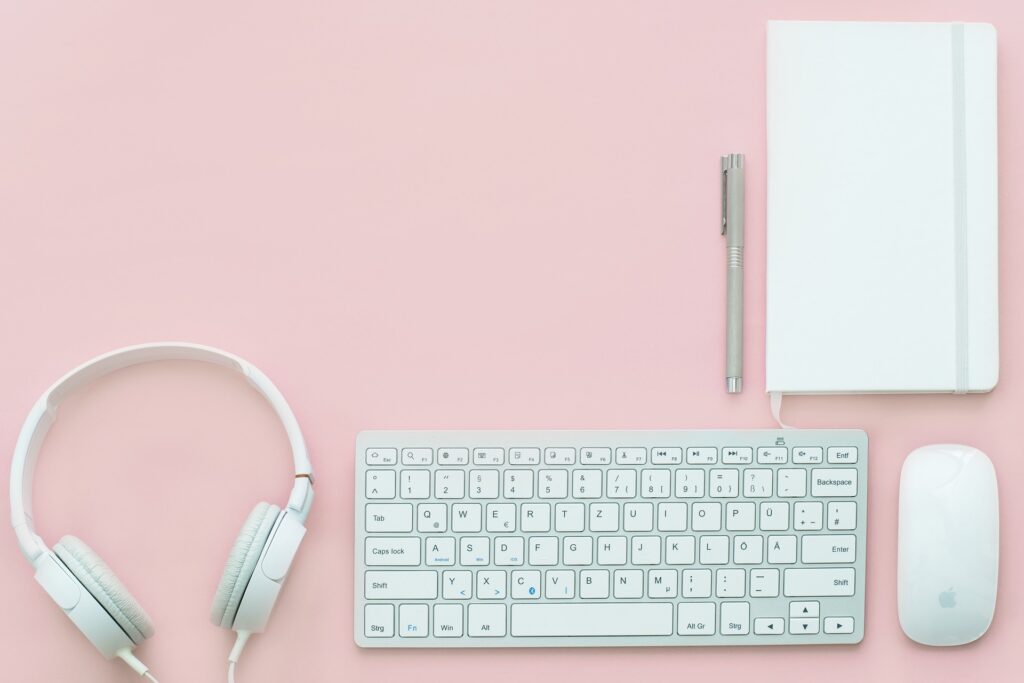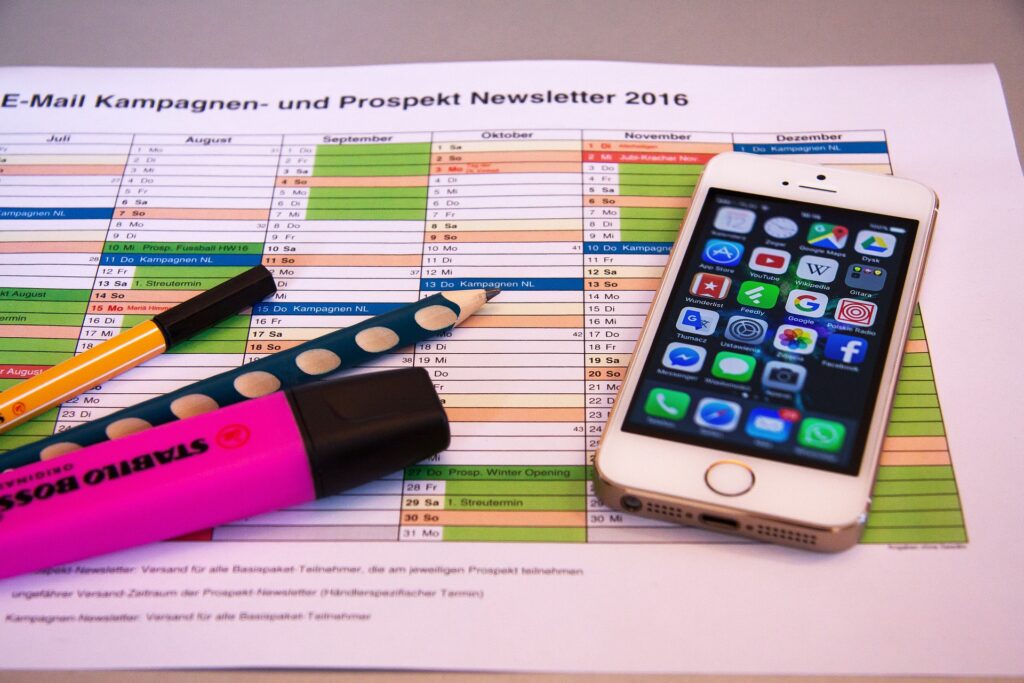Working from your home office for an employer or for yourself can be rewarding and easier than having to go to a place of work.
It has also been shown that through the pandemic that many companies have found that they have been able to measure better productivity, reduced staff turnover and less organizational costs due to staff working at home.
There is clearly a benefit for business as well as for ourselves, so perhaps home working is here to stay or at the very least hybrid working will be a run of the mill option for many positions in the future.
There is of course a flip side to this where working from home can be a massive challenge.
If you are a person that gets super distracted, finds it a struggle to stick to a routine or gets lonely then it might not be for you. You may not be able to create a clear and dedicated workspace in your home, or you may have other householders around you that pull on your energy, make too much noise or use all of the wifi bandwidth.
For some of its its just not a practical option and getting through the pandemic whilst working from home was difficult to say the least.
Looking after your mental health and wellbeing is always important and working from home brings up different challenges in this regard. Lets have a look at the factors that can make working from home a bit easier or in fact a full blown success for those of us that want to try it moving forwards – in a way that hopefully won’t detrimentally affect you or those around you.

1) Set up a Space
Having a dedicated workspace is important, with every thing to hand that you are going to need.
If you haven’t got everything then this could easily turn into a time wasting exercise and might go further than that into full on procrastination and faffery.

If its practical to do so try to keep your workspace separate from personal space, this helps you to have a mental boundary when you are finished work as you “clock off”.
If you have not got a dedicated space and you need to commandeer the kitchen table, see if there is a way that you can store all of your work paraphernalia at the end of your working day.
Perhaps you could get some archive boxes or something similar to drop things into and then get them back out in the morning? If I didn’t have an office space I think I’d look for an old fashioned writing bureau and close it off at the end of the day so work wasn’t a visual prompt in my environment stopping me from having family time and relaxing.
I’ve seen loads of these for sale on facebook market place and ebay and they can be upcycled to match your current decor.
2) Have a schedule and stick to it.
If you are employed, this could be dictated by your employer but if you are self employed you will likely have more flexibility to create your own. Having a schedule is helpful in lots of ways, for you and for the people in your life too.
When you know what your working days and hours look like you can make other people aware of this and hopefully get their support. This might mean that they can help to minimize distractions by working their day around you and being more mindful of when you might need more quiet time.
Until you tell people they won’t know, but you won’t know yourself until you work out your schedule.
Working from home means you have to have a bit of flexibility, but in general a schedule is a winning strategy.

Considering work load, tasks that need to be completed and your own personal rhythm throughout the day is going to be relevant here. For example if I need to make a coaching call to a client, its not going to go down well at 6am when I will wake everyone up. I don’t often start client calls until 10am because this also gives me between 8 – 10am to have a shower, get some breakfast and look over the client notes from the previous week.
I need to show up in a good energy and have plenty of time before hand to get organized and settled or I can’t be as present as I want to be. In my schedule I allow time before and time after a call that is not client contact time, but time that I need for prep and also reflection and writing notes.
Personally its better for me to do tasks between 6-8am that are not going to disturb other people in the house, so this is when I schedule social media posts and write.
I am an early riser and I like to get loads done first thing because my concentration and productivity are high, but in the afternoon I often have a power nap for around 40 – 60 minutes, this is an example of listening to your own natural rhythm. This works for me because I can then shore up enough energy to work in the later afternoon or early evening for a couple of hours and still have enough presence to cook for the family and engage with my partner and teenager until bedtime.
3) Block Tasks
Getting into the flow of a task takes energy and concentration and if I am disturbed or distracted its often hard to get back into the zone. I like to maximise my productivity by blocking tasks that are similar and getting as much done as I can. If I am making social media posts then I make a batch of them rather than one or two, if I am writing I block off an amount of time that is at least 2 hours in order for me to get into the flow.

This can also be used for non work tasks such as cooking – if you can cook a double quantity of something and freeze it then you are saving time the following week when all you need to do is reheat. You are also saving mental bandwidth because you don’t have to go through the thinking process of what you are going to have to eat, what the ingredients are, if you need to go to the store to buy anything etc.
You will also save money on energy if you are reheating rather than cooking from scratch, a casserole for example can be portioned and frozen for the following week, knowing that all you need to do is reheat it in a saucepan rather than having it cooking slowly in the over for 4 hours like you did the week before.
4) Get Help or Delegate – Home and Work
If you are not driving or travelling to work you may have some extra income to get help with household tasks such as ironing or housework. Having an untidy environment or piles of stuff to do can really pull on your energy and distract you from working, in the past its ended in me stopping work in order to get a household task done because it’s been bothering me that much.
I recently cleared out a cupboard and started fill it with the clean laundry that needed ironing rather than having it piled up on the table in my sitting room, because every time I saw it (which was several times a day) my heart sank and I started to feel overwhelmed. It acted as a visual cue in my environment to trigger an undesired response and this response kept chipping away at me and became a slow but constant energy drain.
Now I can’t see it so it’s stopped happening – I’ve reclaimed some of my energy.
I block time off to do the ironing when I want to unplug from work and watch television, and I keep shows on my planner that I’m invested in for that exact reason so it feels less boring.
If I really hated doing ironing I’d outsource this and get someone to pick it up and drop it off for me, because I don’t want another person in and out of the house creating more distraction.

Delegating when you are a business owner is super smart and helps your productivity loads.
Whenever I have a new project starting in my business I break down the tasks that need to be done and I ask my team who would like to do some or all. Sometimes we have to compromise and do things we don’t love, but in the main and as a first port of call I want people that work in my business to enjoy what they do as much as possible.
This goes for you too – what do you love to do in your business and maybe more importantly what do you not love to do? You can bet your bottom dollar that there is someone out there that really loves the stuff that you don’t and by asking them for help you are supporting them in their work and flow and freeing up bandwidth for yourself.
I absolutely love my Virtual Assistant, she is totally into tech and spreadsheets – neither of which I am good at and both of which I need.
4) Plan Dedicated Social Time
When you work from home its easy to not stop working.
This is where your schedule will help and also having a dedicated work space, but in addition to this you need to schedule in social interaction that is ideally away from home.

A change of environment and being around different people will do you the world of good, so whether its coffee or lunch with a friend or perhaps an evening indulging in a hobby with like minded folks – get something on the go to help lift you up, engage you and help your mental health.
I’m going back to choir after a long time away and I know its going to do me so much good.
What could you do with other people on a regular basis that you could schedule in?
I hope this helps you, and as always only take what you need!
Let me know in the comments if you found this useful!

Set your day up right from the get go with my FREE Morning Meditation.
Other Articles You Might Like
Create, Make & Sell Your Own Oracle or Tarot Deck
Write, Self Publish & Sell Your Book
Boost Your Income With a Side Hustle
Related Podcast Episodes – Listen on Apple Podcasts, Spotify, Amazon Music, Audible & Alexa
When Life Gives You Lemons – The Shitter Week
Signs That You May Be Struggling
Mindfulness with Crafts
